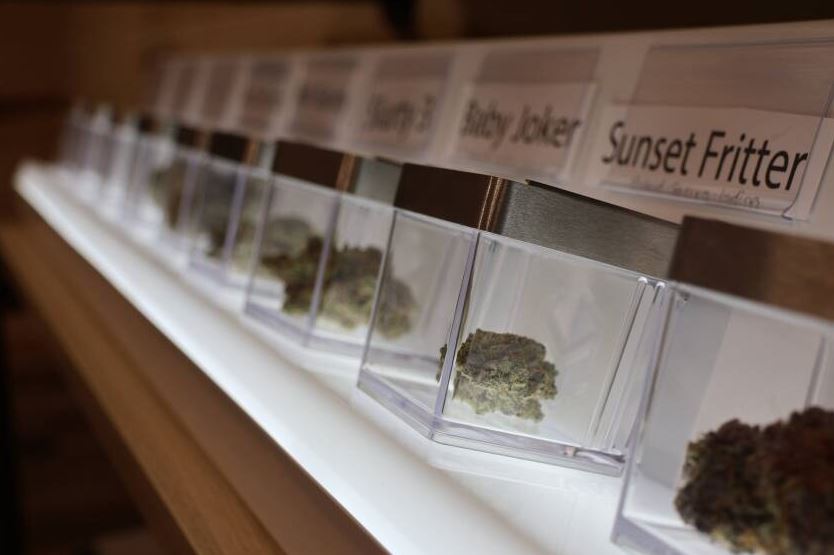Sleep should be a time of recovery, but for millions, it is more like an evening struggle. Others spend hours in bed, turning and tossing, unable to sleep, while others fight with sleep apnea, waking over and over throughout the night due to obstructed breathing. Conventional remedies abound, from prescription medication to CPAP machines, but some people just don’t get relief.
That’s why cannabis has become so popular for sleep disorders in recent years. Those who’ve already tried everything else ask: Does cannabis help you sleep, and can it really work to change the course of insomnia or sleep apnea? Scientists are still trying to uncover the answers, but studies and anecdotal evidence suggest both promising rewards and crucial warnings.
This article examines the connection between cannabis and sleep disorders, what the science has to say regarding cannabis for insomnia and cannabis and sleep apnea, the possible risks, and how cannabis compares with other sleep remedies.
Understanding Sleep Disorders.
Before diving into cannabis, it’s worth understanding what’s at stake.
Insomnia: It is one of the most common sleep disorders, affecting up to 30% of adults worldwide. It can take the form of difficulty falling asleep, waking frequently, or rising too early without being able to drift back to rest. Stress, anxiety, poor sleep habits, and underlying medical conditions often fuel the problem.
Sleep apnea, however, is not sleeplessness but rather perilous pauses in breathing while sleeping. The most prevalent form, obstructive sleep apnea, results from the airway collapsing or being obstructed. It results in loud snoring, frequent arousal, oxygen dips, and excessive daytime sleepiness. Untreated, sleep apnea increases the risk of high blood pressure, cardiovascular disease, and even stroke.
More traditional approaches include prescription sedatives, cognitive behavioral therapy for insomnia (CBT-I), and, in the case of apnea, the familiar CPAP machine. Many patients, however, seek out marijuana for a sleep disorder when these more traditional avenues fail to bring them the relief they are seeking.
Cannabis 101: Why People Think It Helps Sleep.
The buzz around cannabis sleep aid benefits comes down to the plant’s active compounds.
THC (tetrahydrocannabinol): The main psychoactive compound. At certain doses, it has sedative qualities that may shorten the time it takes to fall asleep. However, it can also alter the sleep cycle, particularly cannabis and REM sleep, which we’ll explore shortly.
CBD (cannabidiol): Non-intoxicating, with soothing and anxiety-fighting properties. CBD is widely used for insomnia, particularly when stress and racing thoughts interfere with sleep.
Terpenes: Volatile plant compounds in cannabis, like myrcene and linalool, are thought to aid relaxation and sedation.
Cannabis affects the body’s endocannabinoid system, a web of receptors that play a role in managing mood, appetite, pain, and yes, sleep. That’s why so many swear by the promise of medical marijuana for sleep disorders and medical cannabis for sleep apnea.
Cannabis and Insomnia: What Does Science Have to Say?
When it comes to cannabis for insomnia, science is both fascinating and complex.
Reductions in the time it takes to fall asleep have been suggested in some studies for individuals who struggle with falling asleep. This is consistent with anecdotal evidence, hundreds of people report that cannabis enables them to fall asleep quickly and sleep longer. CBD for insomnia has also become popular, particularly in curbing the anxiety that spurs sleepless nights.
Still, the tale is not entirely negative. High THC dosages can interfere with the regular sleep pattern, inhibiting REM sleep, the phase that has been associated with dreaming, memory processing, and emotional regulation. While intermittent REM skipping may be inconsequential, persistent REM skipping may affect psychological well-being over time.
The second obstacle is tolerance. Long-term cannabis smokers tend to require greater doses to induce the same sleep effect, and abrupt cessation can result in rebound insomnia.
So, while medical marijuana to treat insomnia is promising, experts advise it to be used as one tool in the toolkit, and not as a fix-all.
Cannabis and Sleep Apnea: Is There Hope?
Cannabis and sleep apnea is a field of increasing investigation, but still much less developed than insomnia. Sleep apnea is characterized by disturbed breathing, so the question then is: can cannabis enhance airway stability or cut apnea events?
A few initial studies indicate that it may. Synthetic THC or dronabinol has also been studied for sleep apnea and resulted in fewer interruptions of breath in some patients. This has created interest in THC for sleep apnea as a potential therapeutic avenue.
All that aside, though, the evidence is still in early stages. While sleep apnea, medical cannabis may be beneficial, it’s not yet a treatment that’s approved. Sleep experts also caution that cannabis’s effect as a relaxant may conceal symptoms without treating the underlying cause of airway blockage. In certain instances, that may even prove perilous, as muscle relaxation could exacerbate breathing impairments.
Thus far, the message is guarded optimism: cannabis may one day augment sleep apnea treatments, but depending on it as a sole treatment is deemed not safe or adequate.
Benefits and Risks of Cannabis as a Sleep Aid.
There are clear cannabis sleep aid benefits, but also important risks.
Potential Benefits:
-Shorter time to fall asleep.
-Reduced nighttime awakenings.
-Anxiety relief through CBD.
-Relaxation aided by terpenes.
-Possible reduction in apnea events (though still under study).
Risks:
-Suppressed REM sleep, which may impact emotional health and memory.
-Tolerance and dependence with long-term THC use.
-Next-day grogginess or impaired alertness.
-Interactions with other medications.
-Legal and regulatory issues depend on location.
Eventually, cannabis cannot be considered a solution for everyone. Its impact is quite different based on the strain, dosage, route of administration, and person. For people trying cannabis, selecting the best cannabis strains for sleep, usually those rich in sedative terpenes and moderate THC, is highlighted by seasoned users.
Alternatives and Complementary Strategies.
Even if cannabis is beneficial, it would be best as one component of a comprehensive sleep plan.
For insomnia, CBT-I is still the best long-term treatment. Mindfulness, relaxation training, and improved sleep hygiene (regular schedules, less screen time, lower room temperatures) are all key components.
For sleep apnea, CPAP therapy is still the best treatment. Weight loss, oral appliances, and in selected instances, surgery are also key complementary interventions.
In that context, weed for sleep disorders can be helpful, but it shouldn’t supplant medical assessment or established therapies. Rather, it can be considered an adjunct for individuals who don’t find sufficient benefit with standard methods on their own.
Conclusion
The question, Does cannabis help you sleep, can’t be answered with a simple yes or no. There’s evidence that cannabis can help some individuals with insomnia by reducing anxiety and limiting sleep onset. There’s also promising early evidence for marijuana and sleep apnea, but it’s a long way off from being an accepted treatment.
Currently, the danger is genuine: changed REM sleep, addiction, and unpredictable effects from person to person. The sanest strategy is cautious, educated usage, ideally under physician supervision, instead of self-medication.
Sleep is complicated, and there isn’t one solution that fits all. Medical marijuana for insomnia or medical cannabis for sleep apnea may be of assistance, but lifestyle, therapy, and traditional medication are still important. With ongoing research, perhaps cannabis will be a great tool in combating sleepless nights, but it will not be alone.




